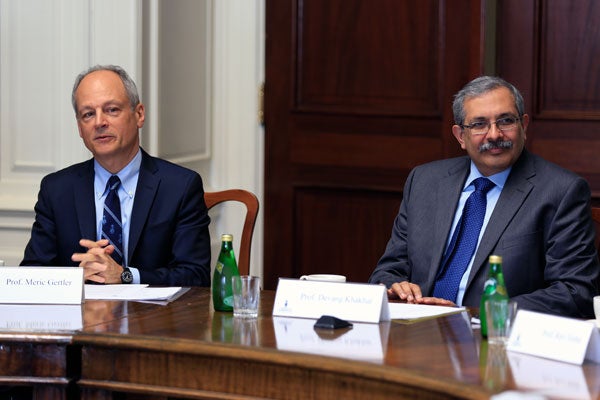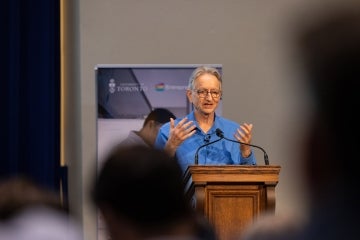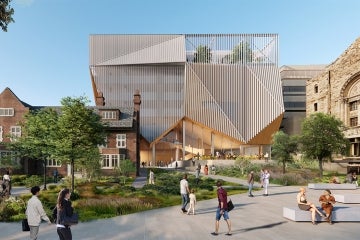
How to build great cities, great universities at home and abroad
Published: June 12, 2014
Great universities need great cities, and great cities need great universities.
That’s the message that University of Toronto president Meric Gertler brought first to the U of T community during his inauguration speech and then to the broader Toronto community when he spoke to the Toronto Region Board of Trade last month.
And now he’s taking that message internationally. In October, Gertler will participate in a Brazil-Canada Cities Summit in Sao Paulo. And this past week he shared the message with Devang Khakhar, director of the Bombay Indian Institute of Technology (IIT Bombay) when Khakhar and his colleagues visited U of T for a round table on the University and the City: The Role of Universities in Building Sustainable Cities.
The round table brought together U of T academics from a variety of disciplines involved in urban studies, including public health, engineering, business and global affairs, to discuss their research in a 60-minute dialogue with the IIT Bombay delegation.
Gertler told Khakhar that U of T and IIT Bombay share a common interest in making cities as livable as possible. U of T, he said, needs to partner “with other great universities in other great cities around the world, learning from you about the ways that you are engaging with your local partners and applying those lessons to our own circumstances.”
In turn, Khakhar said that his institution’s Centre for Urban Science and Engineering welcomes collaboration with U of T. He noted that the new Indian government led by Narendra Modi has pledged to plan 100 new cities. IIT Bombay will be expected to play a major role in those plans, and collaboration with other urban experts around the world will be essential.
The U of T researchers at the round table – including Howard Hu, the dean of the Dalla Lana Faculty of Public Health, IMPACT Centre director Cynthia Goh, the Munk School of Global Affairs’ David Wolfe and Edward S. Rogers Sr. Department of Electrical & Computer Engineering Chair Farid Najm – all said they were eager to take Khakhar up on his invitation to collaborate.
For example, civil engineering professor Constantin Christopolous said it was important that India take into consideration how buildings are constructed when planning the new cities, citing the experience of Christchurch, New Zealand, which will have to demolish many of its buildings damaged in the 2011 earthquake. Asian Institute director Joseph Wong said he would like to discuss how IIT Bombay and U of T can collaborate on solving social inequality. Engineering professor and IC-IMPACTS associate director Stewart Aitchison noted that IC-IMPACTS (the India-Canada Centre for Innovative Multidisciplinary Partnerships to Accelerate Community Transformation and Sustainability) already has a successful record of research collaboration and would be happy to continue and expand those efforts.
Gertler said the variety of disciplines present at the table showed both U of T’s depth and breadth of expertise and the need for a multidiscipline approach to urban issues. Infrastructure, public health, environment, innovation and entrepreneurship are all needed in order to make livable cities.
“We need to embrace our role as a city builder more enthusiastically than we have perhaps done in the past. The better we make Toronto, the better we make the University of Toronto.”



